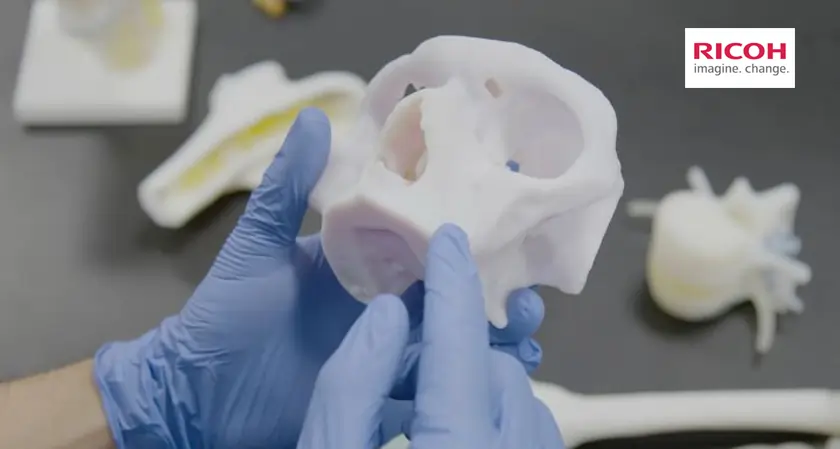Home Innovation 3D Printing Ricoh Introduces a Game-Changi...
Ricoh Introduces a Game-Changing 3D Inkjet Printing for Custom Medical Use
3D Printing

Business Fortune
02 May, 2025
The revolutionary full-color, high-strength 3D printing technology from Ricoh is revolutionizing bespoke production for eyeglass frames and biocompatible dental prosthesis.
The innovative 3D inkjet printing technology was created by Ricoh, a multinational imaging and electronics company based in Japan. Ricoh makes it possible to create full-color resin components that are both highly mechanically strong and biocompatible. In an industry such as dentistry and eyewear, this innovation is expected to allow the manufacturing of customized, design-sensitive components.
Dental prosthetics and eyeglass frames are examples of custom-made goods that must be of the finest quality and feature fine details. However, because traditional manufacturing often uses manual labor, it makes it costly and time-consuming. Despite the increased interest in 3D printing as a potential solution, existing technologies have limitations.
Dentures and eyeglass frames have previously been produced using 3D printing based on stereolithography. Although these techniques are capable of creating complex structures, they typically fall short of aesthetic and durability standards due to their limited mechanical strength and capacity to only create single-color output.
Material jetting, which produces bright, full-color output using inkjet technology and UV-curable resin, is a common technique for designing prototypes. However, its low strength has prevented it from being suitable for working parts. Coh developed a special ink and process that enables reliable, accurate, and full-color output in order to address this issue.
Ricoh's material jetting technology includes a specially designed ink with additives that, when jettable, significantly increase mechanical strength. Full-color expression is achieved by carefully applying highly concentrated yellow, magenta, and cyan strength clear and white inks.
The product is also biologically safe and satisfies JIS T 10993-1 testing requirements for medical devices, thanks to the optimization of monomer and resin composition. As a result, the technique may be used in clinical settings for things like permanent dental prostheses.


































